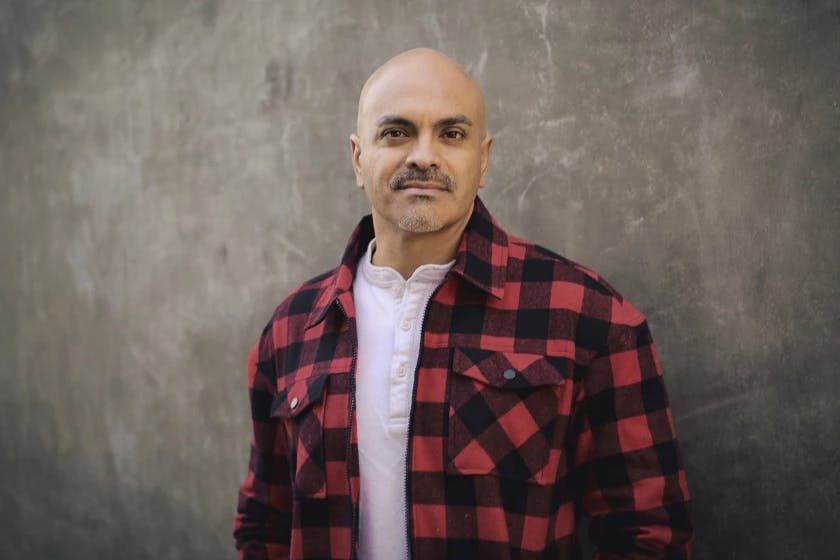UCLA experts: A brave new digital world?

The more digital technology is integrated into our daily lives, the more it is coming under scrutiny. Congress is weighing a nationwide ban of TikTok, the Supreme Court is considering removing liability protection for social media, and parents continue to navigate developmental impacts that were largely unresearched until now. UCLA experts can discuss online trends — including artificial intelligence and other tech innovations — and help unpack their impact on the nation and society.
A moment of reckoning has come
Sarah Roberts
Roberts is co-director of the UCLA Center for Critical Internet Inquiry and an assistant professor of information studies. Her research focuses on the intersection of technology and society, and she is an expert on internet culture, social media and content moderation — both its effect on users and on information workers. She previously worked for Twitter’s health research team. Her book “Behind the Screen: Content Moderation in the Shadows of Social Media” has been translated into multiple languages.
Email: sarah.roberts@ucla.edu
“This is a moment of reckoning for social media firms, a new era in which firms will have to redefine themselves and their products, while governments, civil society advocates, academics and the public at large will no longer be so quick to accept their party lines without question. The advent of powerful new AI technology, coupled with issues that continue to bedevil the companies, like content moderation and platform governance, will continue to grow in importance. For this reason, informed and research-based analyses are critical.”
A matter of justice
Safiya Noble
Noble is director of the UCLA Center on Race and Digital Justice, co-director of the Minderoo Initiative on Tech & Power, interim director of UCLA’s DataX initiative and a professor of gender studies with appointments in the departments of African American studies and information studies. A MacArthur fellow, she is the author of the book “Algorithms of Oppression: How Search Engines Reinforce Racism.”
Email:
Email: snoble@g.ucla.edu
“The most important questions we should be asking are why are we letting a handful of people and companies reshape society with unethical, immoral, ungovernable technologies. We need to think of AI proliferation the way we think about nuclear weapons because the stakes are incredibly high. Unfettered, unregulated technologies are the most important social, economic, environmental and racial justice issues of the 21st century.”
The risk of artificial intelligence
Ramesh Srinivasan
Srinivasan, a professor of information studies at UCLA, is an expert on the intersection of technology, innovation, politics, business and society. His work points the way toward a digital world that supports democracy, economic security and sustainability. His latest book is “Beyond the Valley: How Innovators Around the World Are Overcoming Inequality and Creating the Technologies of Tomorrow.”
Email: ramesh@rameshsrinivasan.org
“It’s high time the public develops greater literacy and companies greater accountability around these new AI systems. They have profound implications on our personal, economic and political lives and often pose the greatest risk to already marginalized groups like women, people of color and those of lesser economic means. AI is already used for citizen surveillance, insurance portfolios and hiring.”
Both Srinivasan and Noble participated in a virtual town hall on ChatGPT and artificial intelligence and how they relates to the UCLA academic mission.
Oversight versus free speech
Tim Groeling
Groeling, professor in the UCLA Department of Communication and author of the award-winning book “When Politicians Attack: Party Cohesion in the Media,” studies media bias, political communication and new media.
Email: groeling@comm.ucla.edu
“In the 21st century, deliberation and debate in the public square has increasingly been shaped or even dominated by a few technology companies. As many call for a more active governmental role in this sphere, others are increasingly concerned that this might pose an even greater threat to free expression in our democratic society.”
Fact, not fear-based, parenting (in the digital age)
Yalda Uhls
Uhls is an adjunct professor of psychology at UCLA and author of “Media Moms and Digital Dads: A Fact Not Fear Based Approach to Parenting in the Digital Age.” Her expertise spans media’s impact on social learning and behaviors of preteens and adolescents. She founded the Center for Scholars and Storytellers, an organization dedicated to unlocking the power of storytelling to help Gen Z grow and thrive.
Email: yaldatuhls@gmail.com
“Navigate technology with your teens with a carrot rather than a stick. Being actively involved and talking with your teen about what they watch is key. They can definitely benefit from your adult brain.”

